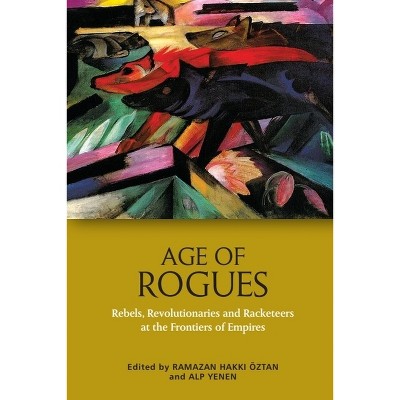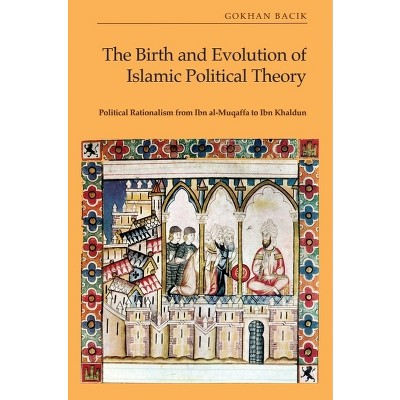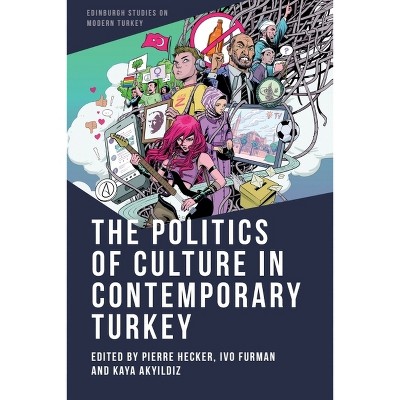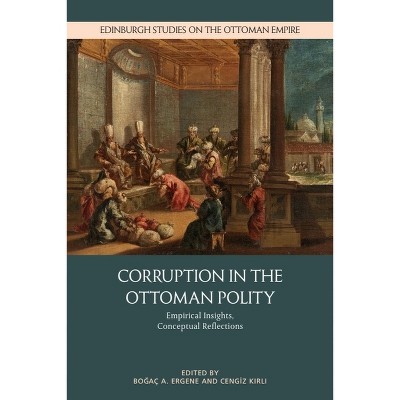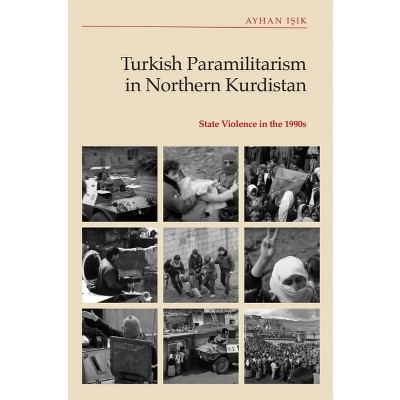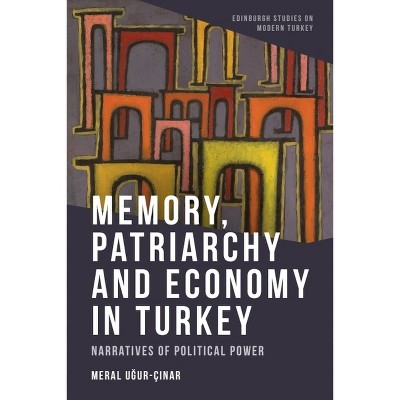Regimes of Mobility - by Jordi Tejel & Ramazan Hakkı & Öztan (Hardcover)

About this item
Highlights
- For the past two decades, insights gained from the burgeoning field of borderlands studies have enabled a new generation of scholars to challenge popular depictions of the emergence of the modern Middle East.
- About the Author: Jordi Tejel is Research Professor in Contemporary History at the University of Neuchâtel.
- 392 Pages
- History, Middle East
Description
About the Book
Reinterprets the making of the modern Middle East by studying its borderlands, drawing on case studies of Turkey, Iraq, Syria, Palestine and Transjordan to overturn popular views of how the borders of the region were formed.Book Synopsis
For the past two decades, insights gained from the burgeoning field of borderlands studies have enabled a new generation of scholars to challenge popular depictions of the emergence of the modern Middle East. For them, the region's borderlands were not just mere sites of peripheral activity, but rather liminal spaces criss-crossed by global flows and circulations central to state- and nation-formation across the Middle East. This volume analyses case studies on Turkey, Iraq, Syria, Palestine and Transjordan that highlight the connectedness of the politics of borderlands throughout the interwar Middle East.From the Back Cover
Reinterprets the making of the modern Middle East by studying its borderlands The emergence of the modern Middle East is the result of three complementary historical developments: the disintegration of the Ottoman Empire, the institution of British and French control in its stead and the nationalist challenges to this colonial scramble. The introduction of international borders that accompanied this process is commonly portrayed as the drawing of lines in the sand, an artificial partitioning that brought diplomatic closure to an otherwise contested historical space. For the past two decades, insights gained from the burgeoning field of borderlands studies have enabled a new generation of scholars to challenge such popular depictions. For them, the region's borderlands were not sites of peripheral activity, but rather liminal spaces criss-crossed by global flows and circulations central to state- and nation-formation across the Middle East. Regimes of Mobility offers a select number of case studies that highlight the connectedness of the politics of borderlands throughout the interwar Middle East. Key features - Evidence-driven case studies cover borderlands in Turkey, Iraq, Syria, Palestine, and Transjordan - Informed by discussions in borderland and mobility studies, and by global and environmental history - Brings late Ottomanists into conversation with historians of the interwar Middle East Jordi Tejel is Research Professor in Contemporary History at the University of Neuchâtel. Ramazan Hakkı Öztan is Assistant Professor at the Atatürk Institute for Modern Turkish History at Boğaziçi University, Istanbul.Review Quotes
The volume brings together a set of articles of generally impressive quality that offer a simultaneously concise and detailed overview of trends in Middle Eastern borderland studies joining a movement away from the nation state towards regionalization and micro levels of analysis in global history.--Peter Wien, University of Maryland "Die Welt des Islams"
Regimes of Mobility is a welcome addition to our knowledge on the history of the mainly Arab and Kurdish mobile societies and groups in the Arab East who adopted a mobile existence between Syria, Iraq, Saudi Arabia, Jordan, Turkey and Palestine. [...] Both the authors and the editors should be congratulated for crafting such a coherent narrative, usually difficult to achieve for an edited volume.--M. Talha Çiçek, Istanbul Medeniyet University "Middle Eastern Studies"
[...] Regimes of Mobility makes a important contribution to the border literature, both because it focuses on the border construction processes in a specific historical period and because it touches on the state formations of almost all states in the Middle East.--Hakan Ünay "Journal of Borderlands Studies"
Conceiving the post-Ottoman space less through hard borders than porous borderlands, and highlighting the interests of both local and colonial actors, Tejel and Öztan develop "regimes of mobility" into a percipient rubric for the mandate period. Framed by an astute introduction and afterword, eleven case studies trace how traders, nomads, priests and refugees negotiated customs controls, quarantine regulations and national churches amid competing notions and uses of territory. This is a timely study of both the disconnections and redirections that define eras of deglobalisation.-- "Nile Green, Professor of History and Ibn Khaldun Endowed Chair in World History, UCLA"
Departing from the premise that borders move as well as people and that regimes come and go, Regimes of Mobility is an outstanding contribution to what Europeans designated "Middle Eastern" historical studies. This highly readable volume also provides invaluable insights into processes of bordering, multiscalar networking, state-making, mobility, individual agency, and imperial hard and soft power.-- "Nina Glick Schiller, Emeritus Professor of Social Anthropology, University of Manchester"
Regimes of Mobility offers a much-needed historical perspective on the current crisis in the eastern Arab world, where states have collapsed and societies have shattered, and where the world's largest concentration of permanent refugees grows ever larger. Contrary to previous state-centered histories, these cutting-edge essays engage the bottom-up story of how Syria, Lebanon, Palestine, Transjordan and Iraq emerged as states, created by the League of Nations after World War I.-- "Elizabeth F. Thompson, Mohamed S. Farsi Chair of Islamic Peace, American University in Washington"
This volume brings together a fantastic group of scholars whose top-notch articles, based on multilingual and transnational research, provide nuanced accounts of the emergence of Middle Eastern states and their boundary regimes. Tejel and Öztan's volume is a must-read for those interested in the history of subaltern groups, territoriality, mobility, nationalism, and state and identity formation in the post-Ottoman and inter-war Middle East.-- "Sabri Ates, Associate Professor of History, Southern Methodist University"
Ultimately, the volume provides a fresh perspective on understanding how the dismantling of the Ottoman Empire impacted on the borderlands of the newly emerged states and transformed regimes of mobility.--Arda Akıncı, University of Salamanca "Diyâr, 4. Jg., 2/2023"
About the Author
Jordi Tejel is Research Professor in Contemporary History at the University of Neuchâtel. Between 2017-2022, he has led a European Research Council (ERC, Consolidator Grant) research project on the borderlands of the interwar Middle East. He has notably authored La question kurde: Passé et présent (2014), Syria's Kurds: History, Politics and Society(2009), and co-edited with Ramazan Hakkı Öztan Regimes of Mobility: Borders and State Formation in the Middle East, 1918-1946 (Edinburgh University Press, 2022), and with Peter Sluglett, Hamit Bozarslan and Riccardo Bocco Writing the History of Iraq: Historiographical and Political Challenges (2012). He has also published in journals such as British Journal of Middle East Studies, Ethnic and Racial Studies, European Journal of Turkish Studies, Iranian Studies, Journal of Borderlands Studies, Journal of Migration History, Middle East Studies, and 20&21. Revue d'histoire.
Ramazan Hakkı Oztan is Assistant Professor of History at the Atatürk Institute for Modern Turkish History at Boğaziçi University, Istanbul.






